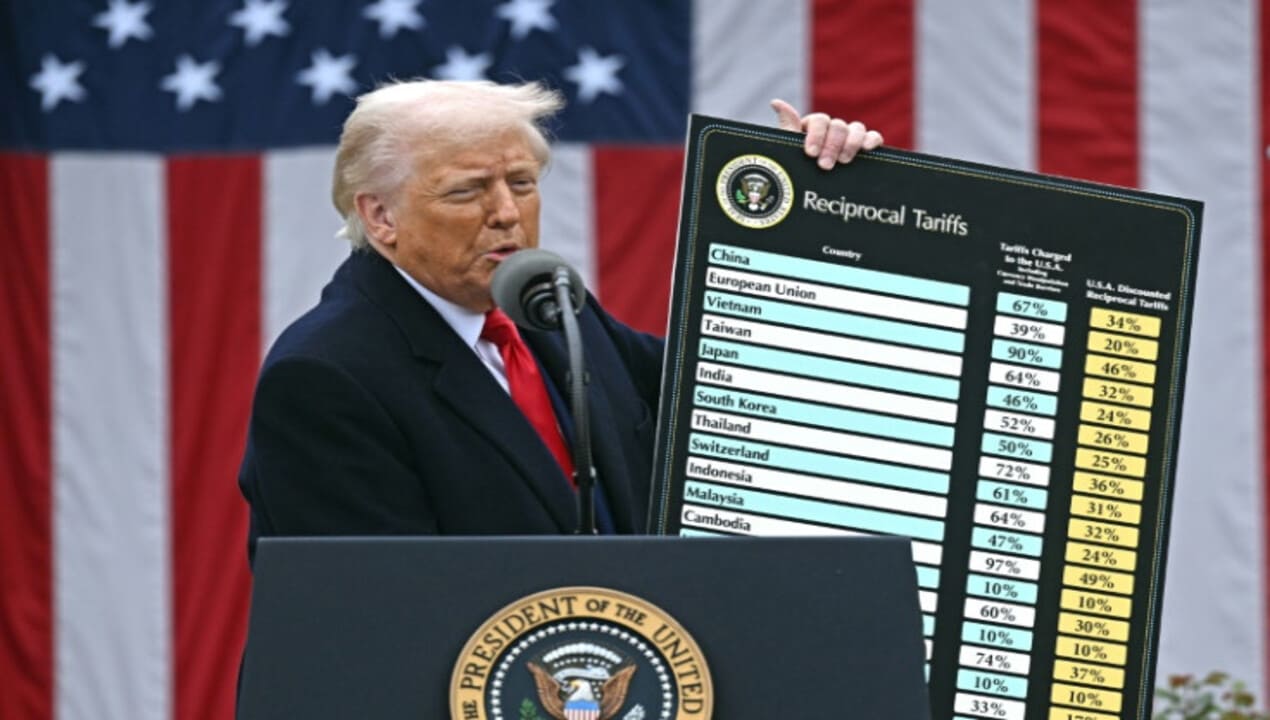
Independent Report – On Wednesday, April 2, 2025, U.S. President Donald Trump announced a broader set of trade tariffs, signaling a shift from free trade to fair trade. This new policy, which includes a 32% tariff on Indonesian products. Underscores the importance of trade diplomacy in addressing international trade disputes. Indonesian Deputy Speaker of the House of Representatives, Sufmi Dasco Ahmad. Emphasized the need for Indonesia to engage in effective trade diplomacy with the United States to resolve the tariff issue. “We must conduct trade diplomacy effectively to address the tariff issue imposed by the U.S. on Indonesia.” Dasco said to reporters on Friday, April 4, 2025.
In response to the announcement, Indonesian Deputy Speaker of the House of Representatives. Sufmi Dasco Ahmad, emphasized the importance of maintaining effective trade diplomacy with the United States. He pointed out that the U.S. is an important trading partner for Indonesia, and managing this relationship well is crucial. “We must conduct trade diplomacy effectively to address the tariff issue imposed by the U.S. on Indonesia.” Dasco said to reporters on Friday, April 4, 2025.
However, Dasco also warned that Indonesia must be cautious and ensure that the country does not become a dumping ground for products that other nations cannot sell in the U.S. “It is also important to make sure that Indonesia does not become a ‘dumping ground’ for foreign products that cannot be marketed in the U.S. This could harm Indonesia’s industrial products and jeopardize our downstream processing efforts,” he explained.
The Gerindra Party politician stressed that safeguarding the national economy is a shared responsibility. He called for collective action from both the government and the private sector. Along with the support of the executive, legislative, and law enforcement bodies. “We must work together to protect our national interests,” he concluded.
The U.S. tariff announcement has drawn significant attention, especially given that the U.S. is one of Indonesia’s key trade partners. As part of a larger strategy to restore American dominance. President Trump introduced a 10% tariff on all imports into the U.S., regardless of origin. The U.S. is also implementing reciprocal tariffs on at least 60 other trading partners. This include countries that impose high tariffs on American goods.
Also Read : TNI Humanitarian Aid to Myanmar Continues Amid Political Conflict
The highest tariff rates under the new policy are affecting Asian economies, with Cambodia facing the steepest rate at 49%. Other countries in the region, such as China and Vietnam, are also seeing high tariffs. China’s new tariff stands at 34%, up from the previous 20%, as a response to its insufficient actions against the fentanyl trade. Vietnam faces a 46% tariff, Thailand is hit with a 36% tariff, and Indonesia and Taiwan are each facing 32%. Other countries in the region, such as Malaysia and the Philippines, have lower tariffs, at 24% and 17%, respectively.
In addition to the tariffs on Asian countries, the U.S. is also imposing a 24% tariff on Japan and 25% on South Korea, both of which are important allies. The new tariffs mark a shift in U.S. trade policy, aimed at reducing what Trump perceives as an unfair trade gap. Trump’s administration claims the new measures are necessary to rebalance trade relationships and protect U.S. industries.
While countries like Canada and Mexico are exempted from the new reciprocal tariff system, the European Union faces a 20% tariff, and Australia a 10% tariff. Trump’s tariffs are part of a broader strategy to encourage other nations to open their markets to American goods. As he stated, “On April 2, 2025, we will remember the day when American industries were reborn, when we took back America’s destiny, and when we started to make America rich again.”
Despite the aggressive stance, Trump insisted that the U.S. would not fully mirror the tariffs imposed by other countries but would instead impose tariffs at half the rate charged by other nations. This strategy is meant to foster fairness in trade relations and ensure that the U.S. retains control over its economic future.
The new tariffs will come into effect starting at midnight on April 5, 2025. The reciprocal tariffs are set to take effect four days later, on April 9, 2025. These tariffs are in addition to the existing 25% tariffs on steel and aluminum imports and a similar levy on foreign cars, which have already been implemented this week.
Economists have compared the impact of these new tariffs to the Smoot-Hawley Tariff Act of 1930, which imposed tariffs on most imports and contributed to the Great Depression. Analysts fear that Trump’s protectionist measures could lead to a global trade war, with countries retaliating against the U.S. by imposing their own tariffs. The consequences of such a trade war could be severe for global markets and economic stability.
Also Read : The Importance of the Retail Industry in the Modern Economy